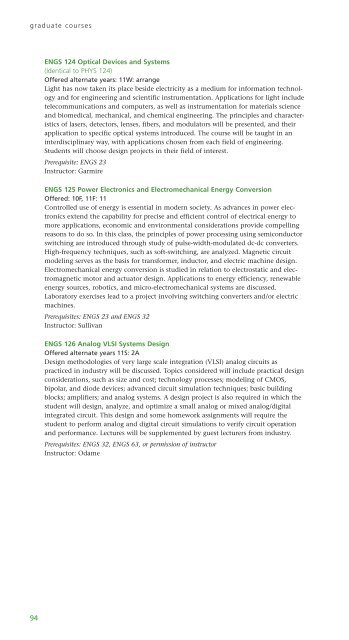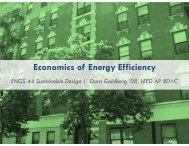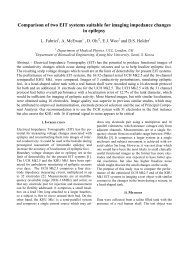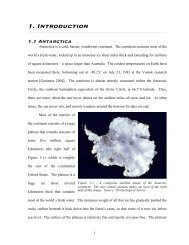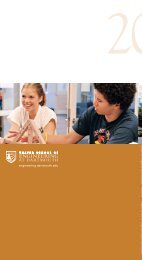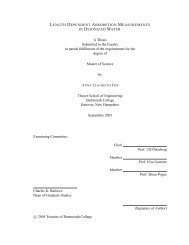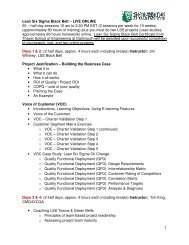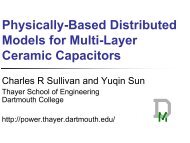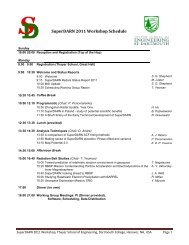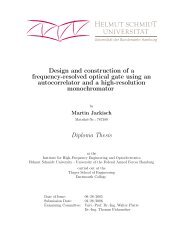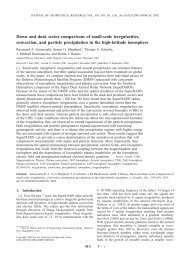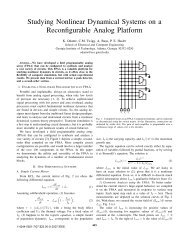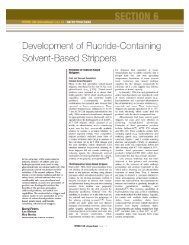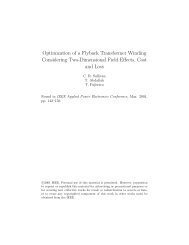Courses Programs - Thayer School of Engineering - Dartmouth ...
Courses Programs - Thayer School of Engineering - Dartmouth ...
Courses Programs - Thayer School of Engineering - Dartmouth ...
You also want an ePaper? Increase the reach of your titles
YUMPU automatically turns print PDFs into web optimized ePapers that Google loves.
graduate courses<br />
94<br />
ENGS 124 Optical Devices and Systems<br />
(Identical to PHYS 124)<br />
Offered alternate years: 11W: arrange<br />
Light has now taken its place beside electricity as a medium for information technology<br />
and for engineering and scientific instrumentation. Applications for light include<br />
telecommunications and computers, as well as instrumentation for materials science<br />
and biomedical, mechanical, and chemical engineering. The principles and characteristics<br />
<strong>of</strong> lasers, detectors, lenses, fibers, and modulators will be presented, and their<br />
application to specific optical systems introduced. The course will be taught in an<br />
interdisciplinary way, with applications chosen from each field <strong>of</strong> engineering.<br />
Students will choose design projects in their field <strong>of</strong> interest.<br />
Prerequisite: ENGS 23<br />
Instructor: Garmire<br />
ENGS 125 Power Electronics and Electromechanical Energy Conversion<br />
Offered: 10F, 11F: 11<br />
Controlled use <strong>of</strong> energy is essential in modern society. As advances in power electronics<br />
extend the capability for precise and efficient control <strong>of</strong> electrical energy to<br />
more applications, economic and environmental considerations provide compelling<br />
reasons to do so. In this class, the principles <strong>of</strong> power processing using semiconductor<br />
switching are introduced through study <strong>of</strong> pulse-width-modulated dc-dc converters.<br />
High-frequency techniques, such as s<strong>of</strong>t-switching, are analyzed. Magnetic circuit<br />
modeling serves as the basis for transformer, inductor, and electric machine design.<br />
Electromechanical energy conversion is studied in relation to electrostatic and electromagnetic<br />
motor and actuator design. Applications to energy efficiency, renewable<br />
energy sources, robotics, and micro-electromechanical systems are discussed.<br />
Laboratory exercises lead to a project involving switching converters and/or electric<br />
machines.<br />
Prerequisites: ENGS 23 and ENGS 32<br />
Instructor: Sullivan<br />
ENGS 126 Analog VLSI Systems Design<br />
Offered alternate years 11S: 2A<br />
Design methodologies <strong>of</strong> very large scale integration (VLSI) analog circuits as<br />
practiced in industry will be discussed. Topics considered will include practical design<br />
considerations, such as size and cost; technology processes; modeling <strong>of</strong> CMOS,<br />
bipolar, and diode devices; advanced circuit simulation techniques; basic building<br />
blocks; amplifiers; and analog systems. A design project is also required in which the<br />
student will design, analyze, and optimize a small analog or mixed analog/digital<br />
integrated circuit. This design and some homework assignments will require the<br />
student to perform analog and digital circuit simulations to verify circuit operation<br />
and performance. Lectures will be supplemented by guest lecturers from industry.<br />
Prerequisites: ENGS 32, ENGS 63, or permission <strong>of</strong> instructor<br />
Instructor: Odame


